
Among the Polish film directors it is Krzysztof Kieślowski who is still most appreciated abroad. Many foreign directors are inspired by his works. One of them is Tom Tykwer, whose “Run, Lola, run” (1998) resembles in its structure the “Blind chance” of Krzysztof Kieślowski (1981). In 2002 Tom Tykwer made “Heaven” based on the screenplay of Kieślowski and Piesiewicz, and two years later the next film of the unfinished trilogy, “L’Enfer” directed by Danis Tanovic, was released. Influence of Kieslowski is visible also in the works of such authors as Nuri Bilge Ceylan or Cristian Mungiu, as well as in the cinema of Polish directors - Jerzy Stuhr or Greg Zgliński. The 20th anniversary of Krzysztof Kieślowski’s death, falling in March, is a very good opportunity to present some films of this outstanding Polish director, both from his early documentary stage and the later features. During the review, held in the Iluzjon cinema between 9th and 31st of March, we will present the following titles: “A short film about killing”, “A short film about love” – two cinema versions of the episodes of the “The Decalogue” series, a metaphysical drama “La double vie de Veronique” or the “Trois couleurs” trilogy. Three documentaries will be screened, too: „Życiorys”, „Nie wiem” and „Krótki dzień pracy”.
SCREENINGS:
Stolica Room
9 III; 17:45 hrs Życiorys dir. Krzysztof Kieślowski, Poland 1975 45’
13 III; 14:00 hrs No end dir. Krzysztof Kieślowski, Poland 1984 117’
Mała Czarna Room
13 III; 20:00 hrs A Short Film about Killing dir. Krzysztof Kieślowski, Poland 1987 85’
14 III; 20:00 hrs A Short Film about Love dir. Krzysztof Kieślowski, Poland 1988 87’
15 III; 17:45 hrs Blind Chance dir. Krzysztof Kieślowski, Poland 1981 119’
18 III; 18:00 hrs Blind Chance dir. Krzysztof Kieślowski, Poland 1981 119’
19 III; 17:45 hrs No End dir. Krzysztof Kieślowski, Poland 1984 117’
20 III; 19:45 hrs Camera Buff dir. Krzysztof Kieślowski, Poland 1979 112’
24 III; 18:00 hrs A Short Film about Killing dir. Krzysztof Kieślowski, Poland 1987 85’
25 III; 18:00 hrs A Short Film about Love dir. Krzysztof Kieślowski, Poland 1988 87’
29 III; 21:00 hrs Nie wiem dir. Krzysztof Kieślowski, Poland 1977 45’
Ticket prices: 12 - 14 PLN
Box office – (22) 848 33 33; iluzjon.rezerwacje@fn.org.pl
Find us on Facebook
MOVIES:
A Short Film about Killing
A twenty year old youngster kills a taxi driver. His motives remain unknown and his senseless, mechanical cruelty horrifies. The guilt is evident and the court sentences the man to death. Again a human being is deprived of life, but this time legally. The holy commandment „Thou shall not kill” is broken. The fifth commandment of the Decalogue, the film refers to. Kieślowski doesn’t judge nor he presents ready conclusions, as each of us has to decide on his own about one of the most crucial dilemmas of today’s justice system. And here is where the strength and moral value of the film lies. One of the most important Polish movie.
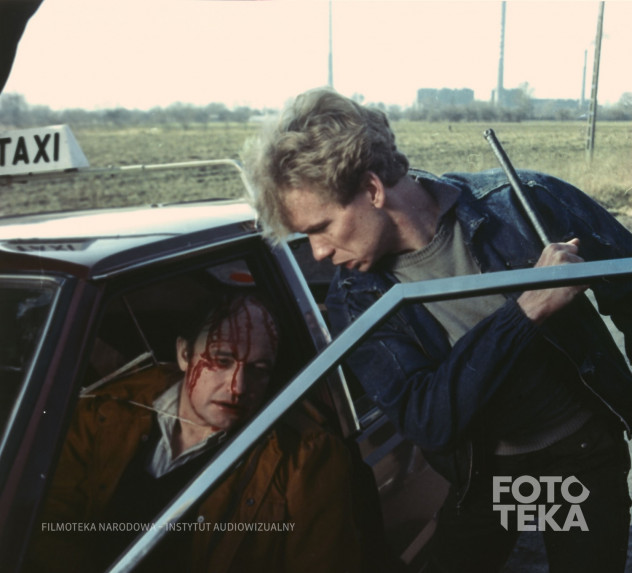 "A Short Film about Killing" dir. Krzysztof Kieślowski
"A Short Film about Killing" dir. Krzysztof Kieślowski
A Short Film about Love
A shy nineteen years’ old Tomek is a fragile and sensitive young man. In the evenings he observes what goes on in the flat of his neighbor, a beautiful, mature woman. At first he is just curious but finally there comes fascination and deep emotion. Tomek tries to establish direct contact with the woman, and he suceeds but finally the relation turns out rather dramatic for The film received Golden Lions of Gdańsk in 1988 (together with A Short Film about Killing).
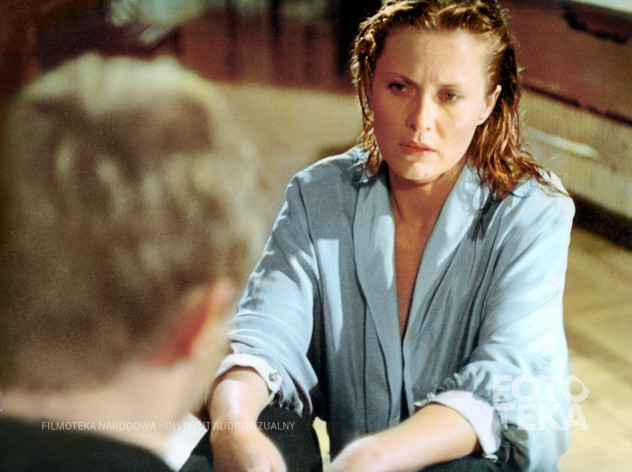 "A Short Film about Love" dir. Krzysztof Kieślowski
"A Short Film about Love" dir. Krzysztof Kieślowski
No End
Counsellor Zyro dies unexpectedly, leaving his professional an personal matters unfinished. His wife, Urszula, cannot get over shock after so sudden death of her husband. However, somehow subconsciously, she senses the presence of him and that makes her feel even more uneasy. In the climactic scene of a car accident she gets absolutely convinced that sme mysterious forces do influence her life. Meanwhile, there is a proces in court of a young worker accused of being the leader of a strike. The case is taken over by a young, hard-nosed and ready for compromise lawyer who replaced Zyro. Being unable to involve in what is going on around her, Urszula, decides to make a final step…
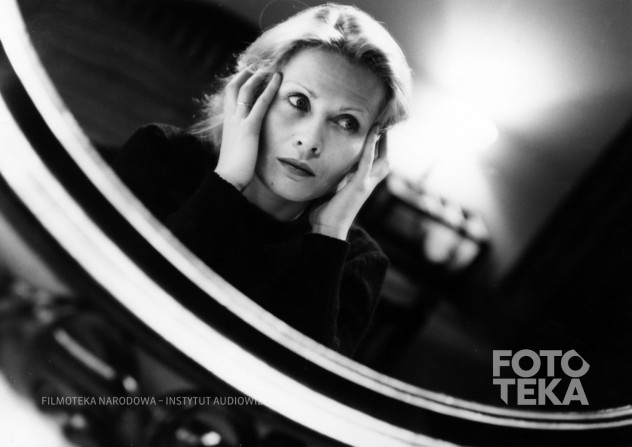 "No End" dir. Krzysztof Kieślowski
"No End" dir. Krzysztof Kieślowski
Blind Chance
The film presents three alternative fates of a young man, dependant on the accident. In the first version the man is trying to catch the train. He meets a communist activist, thanks to whom he gets a job in the youth organization. After dramatic events Witek plans to leave for France. But it summer 1980… In the second version Witek wants to jump into the train. Caught by the police, he gets into a fight with the officers and is put to prison. He gets involved into oppostion activity. In the third version Witek misses the train. On the platform he meets one of his old girlfriends. They get married. Witek graduates from medical academy and starts scientific career. He is offered a contract in Libya. The film was shelved for six years. The meaning of Blind Chance, its philosophical message, grow with time, become more and more universal.
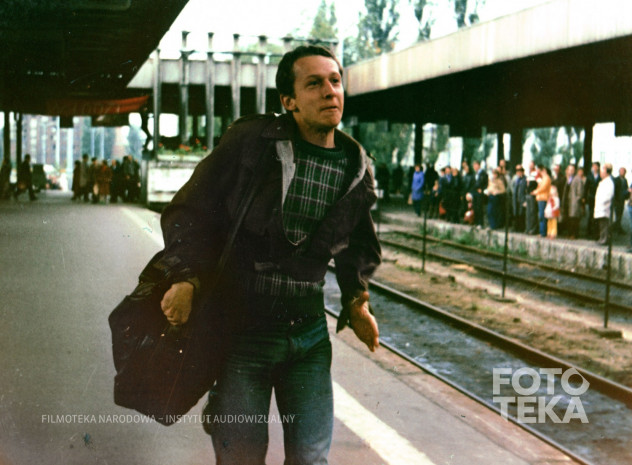 "Blind Chance" dir. Krzysztof Kieślowski
"Blind Chance" dir. Krzysztof Kieślowski
Życiorys
A documentary made as an instruction film, meant only for workshops of the party activists. A report from the meeting of the regional comittee of the party control unit. The committee discusses the appeal of a worker who was excluded from the party. Despite the ficticious figure of the hero, the film becomes a real judgement of the man who fights for his rights. It is a realistic picture of the proces of destroying the human being, who revolts against the system to defend basic ideas of honesty and human dignity.
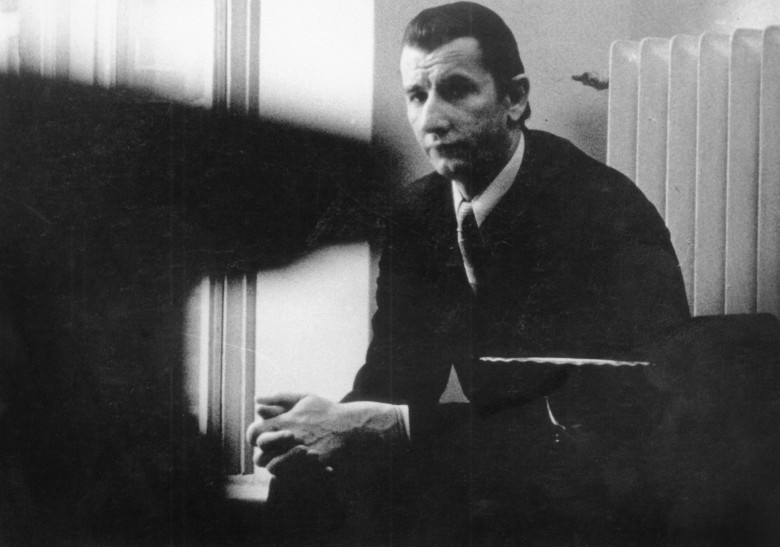 „Życiorys” dir. Krzysztof Kieślowski
„Życiorys” dir. Krzysztof Kieślowski
Camera Buff
Of the most outstanding films of the moral unrest cinema of the seventies of the XX century. The main hero is Filip Mosz, working as a buyer in a factory. We meet him when he becomes a father and is going to buy a camera to film his child growing. Unexpectedly, he is asked by the factory director to film the celebration of the twenty fifth anniversary of the plant. The material Mosz registers is well received and Filip launches an amateur film club, of which the director becomes the patron. Since then Mosz is constantly filming what goes on around him. As a result, his family life suffers from crisis. His wife complains at his absence from home. Mosz makes a critical documentary on the life of his town, the broadcast of which results in firing some pepole form the factory. Filip is shocked. He doesn’t want to make films, if that might ruin other people’s lives. With acuteness typical of him, Kieślowski shows gradual evolution of his hero, transforming from a person concentrated only on his private life, into a conscious artist, sensitive towards wrong-doing and injustice. The film received The Golden Lions of Gdańsk in 1979, and many prestigious awards at international festivals.
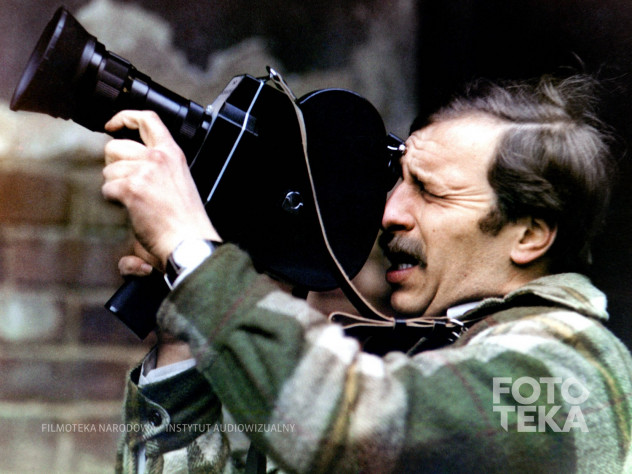 "Camera Buff" dir. Krzysztof Kieślowski
"Camera Buff" dir. Krzysztof Kieślowski
I Don't Know
A story of life of a fired director of a plant in the Lower Silesia region. A record of working reality of the late 60’s in Poland, full of briberies and intrigues. The film, made in1977, was shelved until 1981.
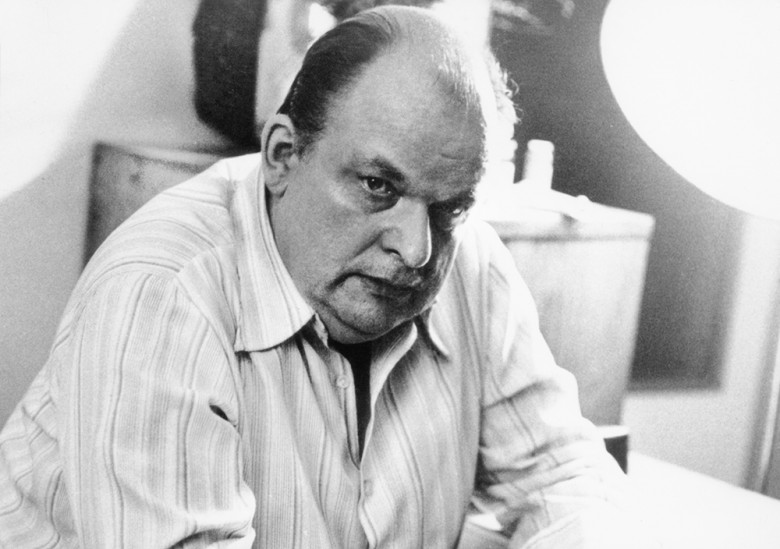 "I Don't Know" dir. Krzysztof Kieślowski
"I Don't Know" dir. Krzysztof Kieślowski











